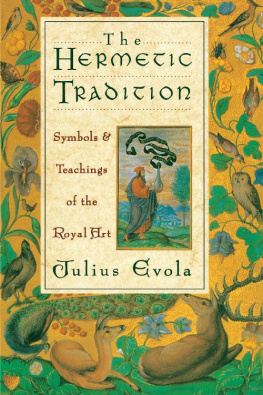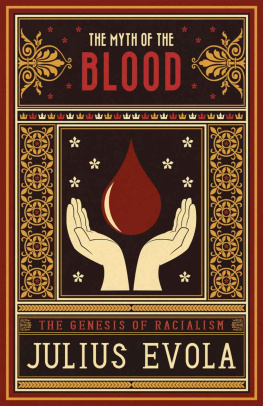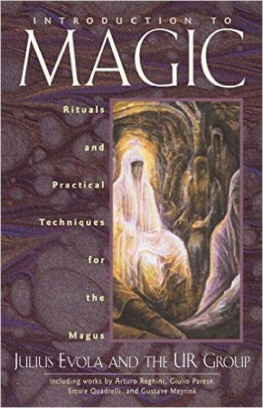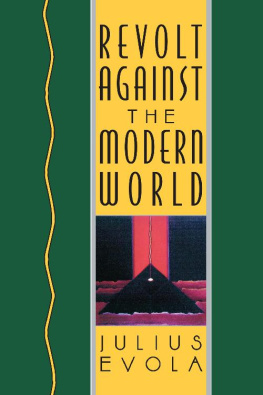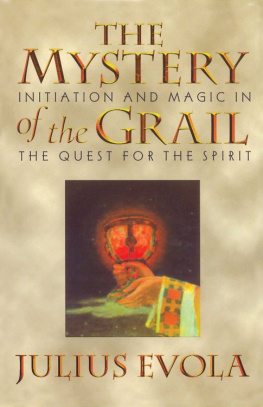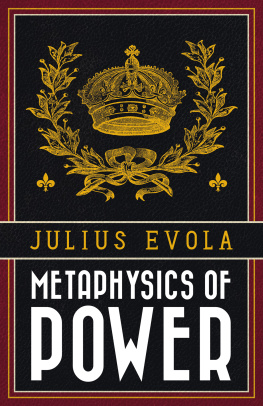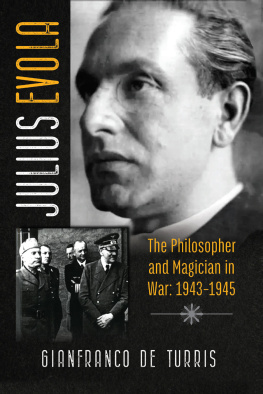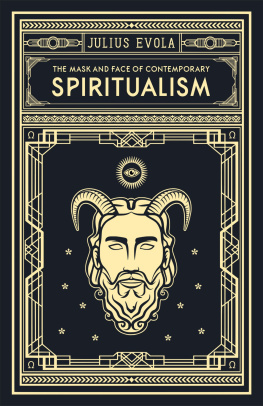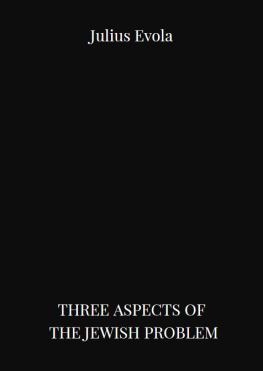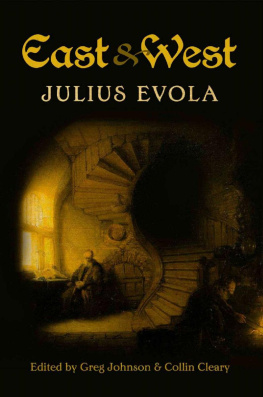Julius Evola - Eros and the Mysteries of Love
Here you can read online Julius Evola - Eros and the Mysteries of Love full text of the book (entire story) in english for free. Download pdf and epub, get meaning, cover and reviews about this ebook. year: 2018, publisher: Inner Traditions / Bear & Co., genre: Science. Description of the work, (preface) as well as reviews are available. Best literature library LitArk.com created for fans of good reading and offers a wide selection of genres:
Romance novel
Science fiction
Adventure
Detective
Science
History
Home and family
Prose
Art
Politics
Computer
Non-fiction
Religion
Business
Children
Humor
Choose a favorite category and find really read worthwhile books. Enjoy immersion in the world of imagination, feel the emotions of the characters or learn something new for yourself, make an fascinating discovery.

- Book:Eros and the Mysteries of Love
- Author:
- Publisher:Inner Traditions / Bear & Co.
- Genre:
- Year:2018
- Rating:4 / 5
- Favourites:Add to favourites
- Your mark:
- 80
- 1
- 2
- 3
- 4
- 5
Eros and the Mysteries of Love: summary, description and annotation
We offer to read an annotation, description, summary or preface (depends on what the author of the book "Eros and the Mysteries of Love" wrote himself). If you haven't found the necessary information about the book — write in the comments, we will try to find it.
Eros and the Mysteries of Love — read online for free the complete book (whole text) full work
Below is the text of the book, divided by pages. System saving the place of the last page read, allows you to conveniently read the book "Eros and the Mysteries of Love" online for free, without having to search again every time where you left off. Put a bookmark, and you can go to the page where you finished reading at any time.
Font size:
Interval:
Bookmark:
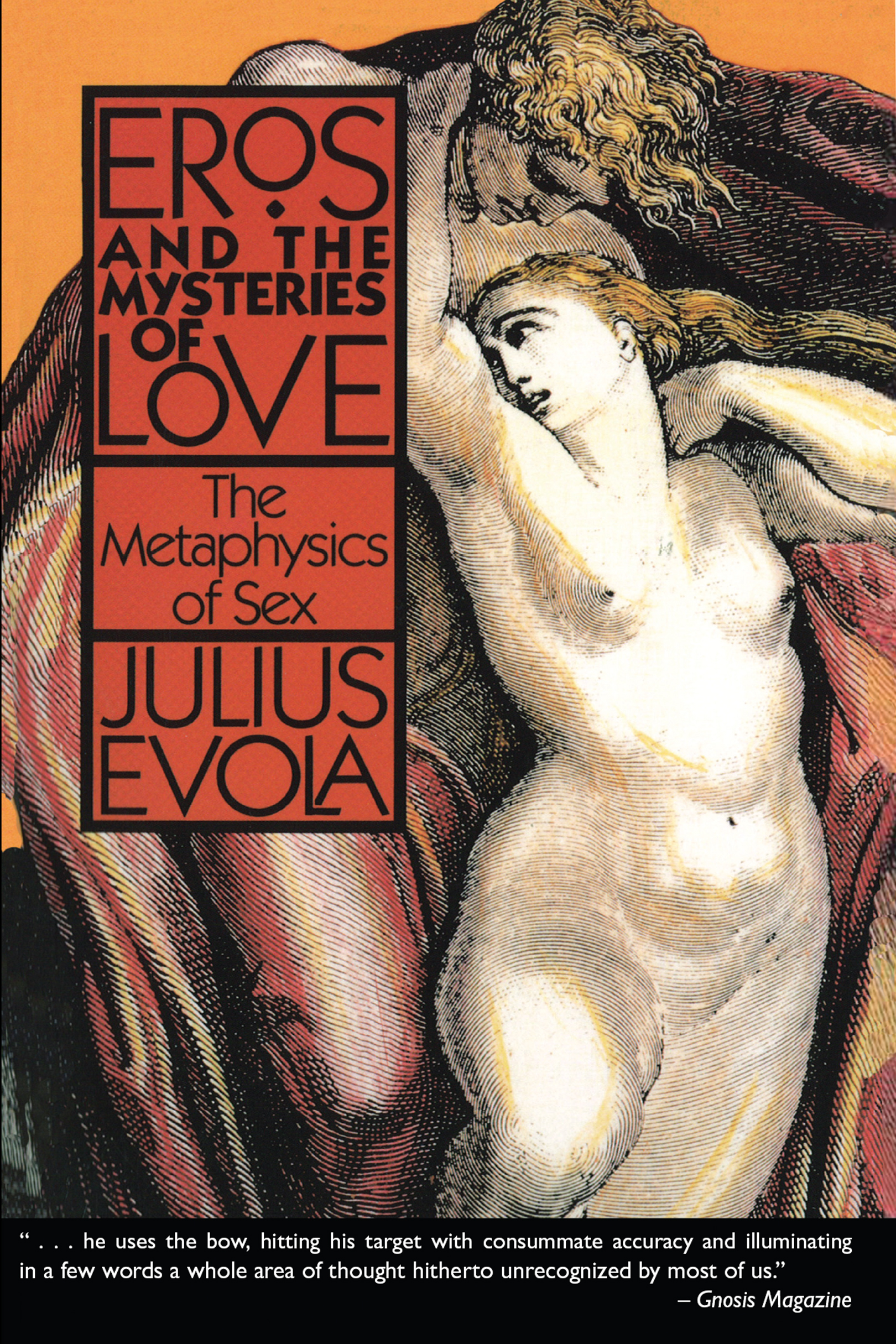
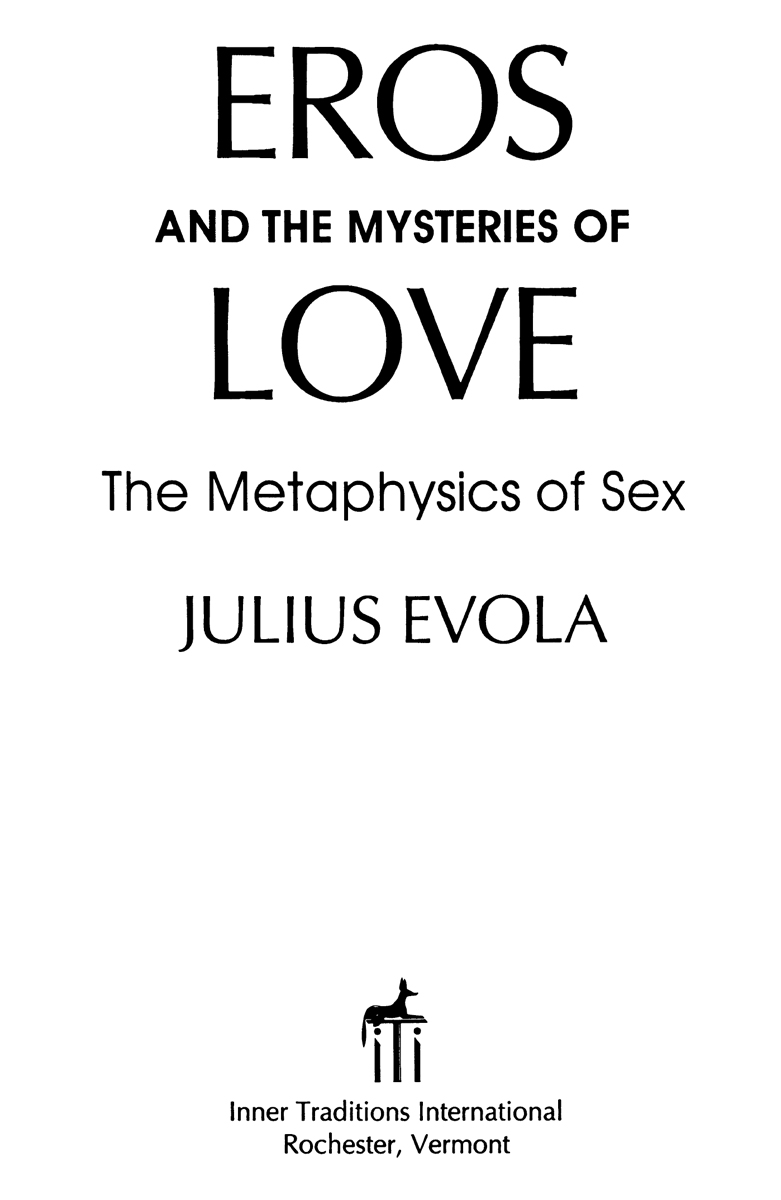
Introduction
The term metaphysics in the title of this book needs to be defined, for it will be used here with two distinct meanings. The first is commonly employed in philosophy, where metaphysics is understood as the search for first principles and fundamental meanings. The metaphysics of sex will therefore be the study of what from an absolute point of view is signified by the sexes and their interaction. There has been little precedence for this kind of research. After mentioning Plato and leaving aside certain hints found in mystical writings of the Renaissanceand also ignoring the theories of Boehme and some heterodox mystics influenced by him, up to and including Franz von Baaderonly with Schopenhauer do we find a precursor. After him, we can only cite Weininger and, to a certain extent, Berdyaev and Klages. In the modern era and above all in our own day, studies of the problem of the sexes from anthropological, biological, sociological, eugenic, and psychoanalytic points of view have multiplied endemically; in fact, a neologism, sexology, has been created to label research of this kind. But none of this has any relation to the metaphysics of sex. In this field, as in every other, our contemporaries have shown no interest in the search for ultimate meanings, or if they have, the search has appeared inconclusive and uninteresting; rather, they have thought to attain more important and serious knowledge by keeping to an empirical and more strictly human level, whenever their attention has not been focused on the pathological by-products of sex.
The same is mainly true of the writers, past and present, who have dealt with love rather than specifically with sex itself. For the most part, they have kept to the field of psychology and, within that, to a general analysis of feelings. Even the writings of such authors as Stendhal, Bourget, Balzac, Solovieff, and D. H. Lawrence have little to do with the deepest meanings of sex. Moreover, references to lovein view of the general meaning of that word nowadays, and given the sentimental and romantic disintegration in the experiences of the majority of peoplewere bound to create ambiguities and to limit research to a narrow and rather commonplace field. Only here and there and, one might say, almost by chance have such writers approached the true depth or the metaphysical dimension of love in its relationship with sex.
But in this study, metaphysics will also have a second meaning, one that is not unrelated to the words origin since metaphysics literally means the science of that which goes beyond the physical. In our research, this beyond the physical will not cover abstract concepts or philosophical ideas, but rather that which may evolve from an experience that is not merely physical, but transpsychological and transphysiological. We shall achieve this through the doctrine of the manifold states of being and through an anthropology that is not restricted to the simple soul-body dichotomy, but is aware of subtle and even transcendental modalities of human consciousness. Although foreign to contemporary thought, knowledge of this kind formed an integral part of ancient learning and of the traditions of varied peoples.
From this context we shall take our reference points for a metaphysics of sex, and we shall verify the possibility of erotic experience leading to a displacement of the boundaries of the ego and to the emergence of profound modes of consciousness. It has been observed that a different rhythm is established in every intense experience of eros, which invests and transports or suspends the normal faculties of an individual and may open vistas onto a different world. But those who are the subjects of such an experience almost always lack the discernment and sensibility to comprehend anything beyond the emotions and feelings that affect them; they have no basis for self-orientation.
Scientists who try to investigate sexuality by studying others rather than themselves are in error, for they cannot approach the depth of the metaphysics of sex. Only the lost sacred science is able to provide the necessary references for investigating the potential dimensions of the experience of eros. Thus we lack the indispensable knowledge needed to identify in terms of reality the possible content of that which is generally assumed to be unreal. Without this knowledge, man can only take eros to the exalted borders of the human, of his passion and his feeling. Only poetry, lyrics, and idealized romanticism are created, while everything else is eradicated.
With these observations, we have in view the profane erotic field which is roughly the only sexual experience known to men and women of the West today and which alone is taken into account by psychologists and sexologists. It may be that the majority of people will not recognize the deepest meanings that we shall ascribe to love in general and even to the crude act that expresses and ends it. Barbusse has described the fact as one in which a manifold and monstrous being is formed and man and woman seek to humiliate and sacrifice everything that is beautiful within them. It may be that the majority will think us capricious and arbitrary, and consider our interpretations abstruse and hermetic. This will only seem so to one who assumes his own limited experience as absolute. But the world of eros did not begin today, and a glance at history, ethnology, the history of religions, mysticism, folklore, and mythology will reveal the existence of erotic forms and sexual experiences in which deeper possibilities were recognized.
References of this kind, well documented in the traditions of diverse civilizations, will suffice to refute the idea that the metaphysics of sex is merely a concept. The conclusion must be quite different. We would say rather that, as if through atrophy, certain aspects of eros have become inactive almost to the point where they are no longer discernible and only their traces and symptoms remain in the sexual love of the present time. Thus, in order to make them evident, an integration is needed, a procedure like the passage from the differential to the integral in mathematics. Indeed it is not likely that in the ancient forms of eros, which often belonged to sacred rites or initiation ceremonies, something was invented and added that did not correspond to human experience; nor is it likely that a use was made of such experience for which it was completely unfit either essentially or in principle. It is much more likely that with the passing of time this experience deteriorated, being impoverished, obscured, or hidden in the vast majority of men and women belonging to a phase of civilization oriented toward materialism. It has rightly been said that the fact that humanity makes love foolishly and unconsciously, as it does almost everything, does not prevent loves mysterious nature from upholding the dignity that belongs to it. In this, as in all other spheres, statistics are worthless. Such a criterion can be left to the trivial methods of a Kinsey. In our research, it is the exceptional that provides the norm at an ideal level. We can now mark out the fields that our investigation will cover. The first will be that of erotic-sexual experience in general: namely, the profane love that any ordinary man or woman may know. We shall look in this field for intervening signs that will take us beyond the simple physical, sentimental fact. We can start with a number of constant expressions, the universal language of lovers, and recurring behavioral patterns. The stereotypical and trivial, considered in a new light, will provide some interesting clues.
Next pageFont size:
Interval:
Bookmark:
Similar books «Eros and the Mysteries of Love»
Look at similar books to Eros and the Mysteries of Love. We have selected literature similar in name and meaning in the hope of providing readers with more options to find new, interesting, not yet read works.
Discussion, reviews of the book Eros and the Mysteries of Love and just readers' own opinions. Leave your comments, write what you think about the work, its meaning or the main characters. Specify what exactly you liked and what you didn't like, and why you think so.

